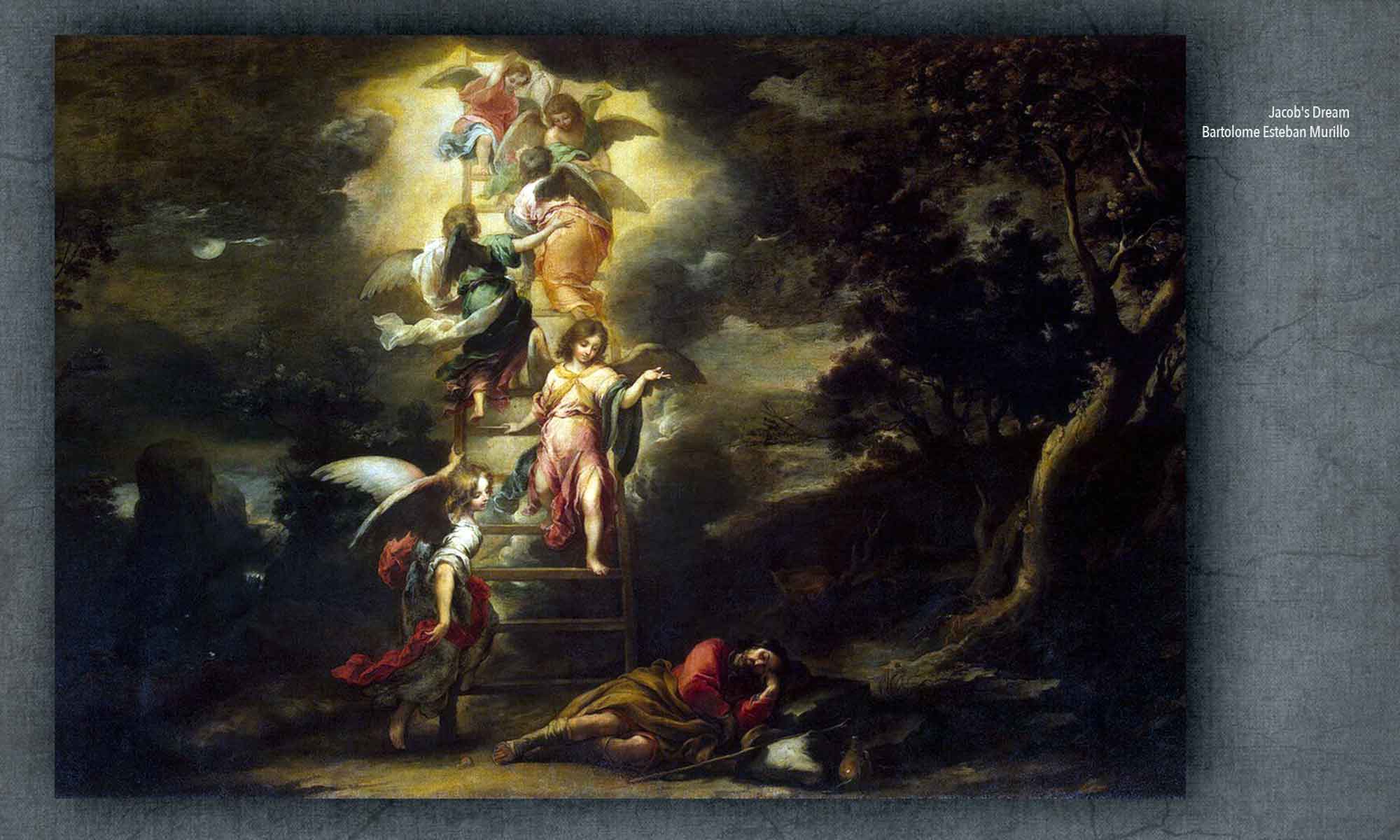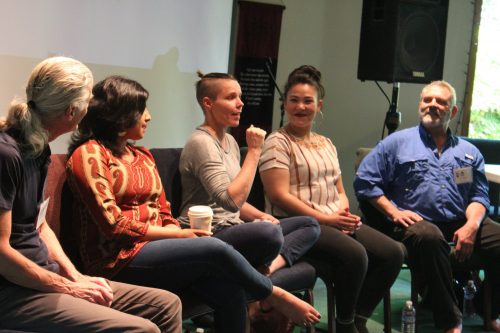 Dreams, like good pieces of fiction, can induce empathy about other people’s lives.
Dreams, like good pieces of fiction, can induce empathy about other people’s lives.
What happens in your mind when you share a dream with another person? When they share a dream with you? How does dream-sharing impact or influence the way you think?
Modern psychologists have developed many different models of how dreams are formed and what functions they serve in the brain-mind system. But few researchers have investigated the psychological dynamics of sharing dreams in natural, healthy settings (i.e., not in a clinical or therapeutic context).
This might seem like an insignificant topic. Don’t most people get bored listening to other people’s dreams? Many people never even remember their dreams, let alone talk about them. Isn’t dream-sharing really just an obscure and esoteric practice?
In a survey that Michael Schredl and I analyzed for a recent article in the International Journal of Dream Research, we asked more than five thousand American adults about their attitudes towards dreams. Included in the survey was this question: Do you agree or disagree with the statement “I get bored listening to other people talk about their dreams”? About 8% of the participants strongly agreed with that statement, and another 17% somewhat agreed. So it is fair to say that at least a quarter of the population does not want to be involved in any dream-sharing.
It also fair to say that a larger proportion of people reject that point of view. About 19% of the participants strongly disagreed with the idea that other people’s dreams are boring, and an additional 24% said they somewhat agreed. In the middle were the remaining 31% who neither agreed nor disagreed. Overall, then, 25% of the participants in this survey could be termed “anti-dream-sharing, as opposed to 43% who were “anti-anti-dream-sharing.”
This finding parallels the results of other surveys I have been gathering for several years on the question of how often people talk about their dreams with others. The data are publicly available in the Sleep and Dream Database (SDDb). With a total of more than 11,000 total participants (5,568 females, 5465 males), these are the results:
- Almost every morning: 3% f, 2% m
- Several times a week: 9% f, 6% m
- About once a week: 9% f, 8% m
- 2 or 3 times a month: 15% f, 10% m
- Less than once a month: 42% f, 43% m
- Never: 22% f, 30% m
Although these are responses to a different question, they match up pretty well with the results from the “I get bored” question. About a quarter of the participants say they never talk about their dreams with other people. More than a quarter of the participants (much more for the females) say they talk about their dreams at least several times a month. The largest group talk about their dreams every once in a while—more than never, but less than once a month.
 These results indicate that many people are not interested in dream-sharing and never do so. The results also indicate that a large number of people in contemporary American society are interested in talking about their dreams with others, and do so on a fairly regular basis. The existence of people in the former group should not deter us from studying the behaviors of the latter group. Especially when we widen the lens to include anthropological and historical research on dream-sharing in other cultures, this emerges as anything but a trivial or insignificant topic.
These results indicate that many people are not interested in dream-sharing and never do so. The results also indicate that a large number of people in contemporary American society are interested in talking about their dreams with others, and do so on a fairly regular basis. The existence of people in the former group should not deter us from studying the behaviors of the latter group. Especially when we widen the lens to include anthropological and historical research on dream-sharing in other cultures, this emerges as anything but a trivial or insignificant topic.
This is the broader context in which to welcome the appearance of a pioneering new research paper by Mark Blagrove and his colleagues in a recent issue of Frontiers in Psychology. Titled “Testing the Empathy Theory of Dreaming: The Relationships Between Dream Sharing and Trait and State Empathy,” the paper is co-authored by Sioned Hale, Julia Lockheart, Michelle Carr, Alex Jones, and Katja Valli. The paper presents results from two experiments showing how dream-sharing might have the specific psychological impact of stimulating empathy. Blagrove et al. make four claims in the summary (to which I have added brief parenthetical comments):
“Study 1 found that trait empathy is significantly correlated with frequency of telling dreams to others, frequency of listening to others’ dreams, and positive attitude toward dreaming.”
(This suggests that people who are highly empathetic also tend to be highly interested in dreams.)
“Study 2 found that dream sharing increases empathy in the listener/discusser toward the dream sharer.”
(Listening to another person tell you their dream has the effect of stimulating empathy.)
“We propose that the dream acts as a piece of fiction, which others can explore with the dreamer and that, like literary fiction, can then induce interest in and empathy about the life of the dreamer.”
(This idea enables dream research to connect with theories about the psychological effects of fiction, narrative, and story-telling, which could be a very productive new path to pursue.)
“Increased dream telling across society might decrease differences between countries in levels of empathy and counteract current societal decreases in empathic concern and perspective taking, the main two components of empathy.”
(Here, Blagrove et al. take a daring imaginative leap in suggesting that if we expand practices of dream sharing across social and cultural boundaries, the enhanced capacities for “empathic concern and perspective taking” could help in resolving problems and conflicts at larger scales of collective life.)
 Some of these findings, proposals, and future visions will be familiar to people who are already deeply experienced in dream-sharing practices. If you have followed the writings and workshops of people like Jeremy Taylor, Montague Ullman, Robert Bosnak, Clara Hill, and many others over the years, you may have come to these same insights yourself. Blagrove and his colleagues have added a valuable new source of empirical evidence in favor of the positive psychological impact of sharing dreams with other people.
Some of these findings, proposals, and future visions will be familiar to people who are already deeply experienced in dream-sharing practices. If you have followed the writings and workshops of people like Jeremy Taylor, Montague Ullman, Robert Bosnak, Clara Hill, and many others over the years, you may have come to these same insights yourself. Blagrove and his colleagues have added a valuable new source of empirical evidence in favor of the positive psychological impact of sharing dreams with other people.
If you’re someone who might locate yourself in the bored by/never talk about dreams category, it’s not too late to try! Sharing dreams helps you expand your empathic awareness and broaden your moral imagination. In most cultures through human history, dream-sharing has been a normal, natural part of life. Thanks to Blagrove et al., we have more reason to appreciate the capacity of dreams to contribute not only to individual well-being but to collective health as well.
####
Full citation: “Testing the Empathy Theory of Dreaming: The Relationships Between Dream Sharing and Trait and State Empathy,” Mark Blagrove, Sioned Hale, Julia Lockheart, Michelle Carr, Alex Jones, and Katja Valli, in Frontiers in Psychology (2019) 10:1351.
This essay first appeared as a post in Psychology Today, August 7, 2019.

 Before going to bed each night after a long day of rehearsals, the director of “Alice in Wonderland” wrote a letter, sealed it, and put it under her pillow. The letter was addressed to her theatrical hero,
Before going to bed each night after a long day of rehearsals, the director of “Alice in Wonderland” wrote a letter, sealed it, and put it under her pillow. The letter was addressed to her theatrical hero,  I want the OA to be real. I think maybe it actually is real.
I want the OA to be real. I think maybe it actually is real. A new study explores the demographic variables that correlate with positive vs. negative attitudes towards dreams.
A new study explores the demographic variables that correlate with positive vs. negative attitudes towards dreams. Dream research in the first half of the 20th century was mostly about proving Freud right. In the second half of the 20th century it was mostly about proving Freud wrong. Now, in the early decades of the 21st century, we may finally be reaching a more balanced understanding of what psychoanalysis can and cannot teach us about dreaming.
Dream research in the first half of the 20th century was mostly about proving Freud right. In the second half of the 20th century it was mostly about proving Freud wrong. Now, in the early decades of the 21st century, we may finally be reaching a more balanced understanding of what psychoanalysis can and cannot teach us about dreaming. Psychologists and anthropologists share a lot of common ground when it comes to the study of dreams. Dreaming clearly emerges out of the brain, mind, and personal life experiences of each individual. Yet dreaming also clearly reflects the individual’s cultural environment–the languages, customs, concepts, and practices of his or her broader community. To understand dreams, we have to find ways of understanding both of these dimensions of meaning.
Psychologists and anthropologists share a lot of common ground when it comes to the study of dreams. Dreaming clearly emerges out of the brain, mind, and personal life experiences of each individual. Yet dreaming also clearly reflects the individual’s cultural environment–the languages, customs, concepts, and practices of his or her broader community. To understand dreams, we have to find ways of understanding both of these dimensions of meaning.